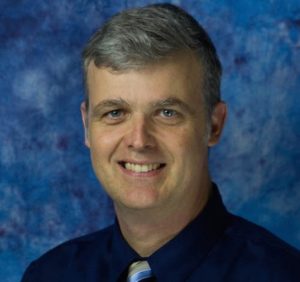 Discussion is impossible with someone who claims not to seek the truth, but already to possess it. (Romain Rolland)
Discussion is impossible with someone who claims not to seek the truth, but already to possess it. (Romain Rolland)
My youngest daughter and I were studying together the other evening for an exam she had the next day. At midnight, my very practical wife (who frequently saves us d r e ame r s f r o m s t a r v a t i o n a n d impoverishment) called timeout for sleep. But neither of us wanted to stop. We were discussing the reasons in the Catholic just war tradition for calling a war “just,” and in what sense the detonation of the atomic bombs at Hiroshima and Nagasaki could be called just.
I love studying with my children, as we launch into wild tangents of exploration that often blow our collective minds. The problem is, we don’t get through the material efficiently and end up panicking around 11:00 p.m. Yet, to this very point my daughter made an astonishing comment before we blitzed through the rest of the material last time: “I think school kills the desire to learn, since just when we start getting excited about what we’re learning in class the teacher says, ‘Okay, we have to move on to get through everything else.’ And then I’m like, okay forget it. What’s the point?”

A photo of grandson spending time with his great-grand mother
“The point” is philosophy, philo sophia, awakening the love of wisdom and knowledge in learners. Leading people to wonder, to fall in love with the quest of the mind after everything. Teachers are inciters of fascination, architects of wonder. And it’s those who eagerly engage in dialogue who are in love with wisdom, with knowledge, with truth.
What Catherine and I did that night was the art of dialogue, of dia logos, which is literally to “think through” another person. Not talking “at” another person, or even “with” them, but thinking through them. My daughter’s thinking “got into” me, and mine into her. It’s really quite amazing. Insights are had in the active, interpenetrating exchange of ideas with another. A dialogue partner helps me to “think through” the truth of the matter we are together seeking. Their thinking influences, disrupts, smacks, illuminates mine, and mine theirs.
Effective, fruitful dialogue requires a number of skills and attitudes if it to yield new insights. Among those, humility is crucial. Humility is an open, willing disposition to learn from anyone and anything—to be corrected and to correct—as well as the persistent realization that I, on my own, never fully possess the whole truth and nothing but the truth. God alone is truth, we are stewards of truth, and truth is only held as a common stewardship. It’s not private property.
St. John of the Cross says it, “Always prefer to be taught by all, rather than to desire teaching even the least of all.” Why? To ensure that you always remain open to the common discovery of new vistas of understanding, new perspectives and insights. The tendency we have is to devolve into monologue, into cliques of agreeable others, or into the pseudo-safety of relativism’s shallow and vapid tolerance of others’ ideas that ostensibly absolves us from the risky duty of engaging in the hard work of “reasoning together” (cf. Isaiah 1:18).
The transformation of humanity into a united community is hard work, and dialogue bears the lion’s share of that work. Which means dialogue is an art of charity, the specific manner by which love binds people more closely together. No dialogue, no unity. This means married couples and families should be the experts, the premier contexts for the art of dialogue, where it is learned, practiced, perfected, and then extended out into the wider civic community, church, and world.
And dialogue, like love, takes time. It requires time “wasted” together, especially time spent face to face. I love the saying, “Children spell love T-I-M-E.” Love requires time-with-me. In your marriage, parenting, friendships—in your relationship with God— the quantity of time invested is an essential ingredient of the quality of your investment. Quality time requires quantity time.
When I think of my closest friendships, all of them, without exception, are relationships in which we do dialogue full throttle. Knock-down, drag-out bliss, enjoying every minute of our joint journey into the Unknown. And it is in those relationships that my deepest, most impactful, challenging, meaningful, and life-changing insights emerge. Over drinks, over meals, during walks, while working on projects together we discuss difficult, fascinating, complex, banal, transcendent issues. Grimacing, pounding the table, shaking heads, nodding, laughing, modulating voice pitch—it’s a wild, unruly, meandering encounter from which I always walk away enlightened, challenged, uplifted, humbler, wiser. Deo gratias.
My grandfather wrote in a letter he sent to Patti and me after our first son was born, “As your children grow, you love them by falling in love with learning all over again every time they ask you a question, want to read a book, or show you a flower they found outside the front door. Time spent speaking with them on anything and everything. That’s your long-term investment in their excellence.”
Amen.
Dr. Tom Neal presently serves as Academic Dean and Professor of Spiritual Theology at Notre Dame Seminary in New Orleans, Louisiana. He has worked for twenty years in adult catechesis, retreat ministry and teaching theology in various contexts trying to make present for others the “Word made fresh.” Tom received a Masters in Systematic Theology from Mount St. Mary’s University and a PhD in Religion at Florida State University.